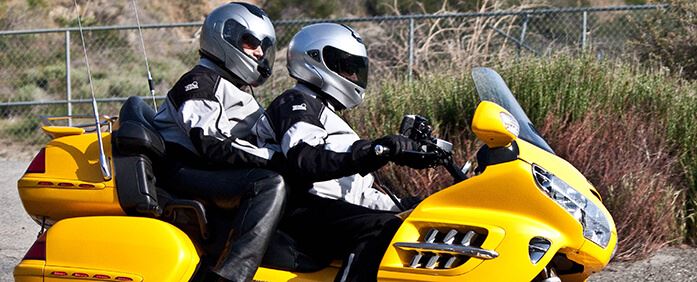Meniscus Tears
The knee, as the largest joint in the body, allows you to walk, run, jump, sit and more. Each of your knees contains two tough, crescent-shaped pieces of cartilage known as the meniscus, which allows you to move your knee joint without pain. Meniscus tears can keep you from performing these basic functions and have a variety of painful symptoms. The good news is that with meniscus tear treatment, you can restore your ability to move around comfortably.
At Hoag Orthopedic Institute, our top knee doctors and surgeons can treat your meniscus tear so that you can return to your favorite activities.
What is a Meniscus Tear?
The meniscus is a c-shaped piece of cartilage within the knee that acts like a shock absorber of the knee. The role of the menisci is to cushion and stabilize the knee joint and to protect the bones from wear and tear. A meniscus tear causes pain, swelling and stiffness. Meniscus tear symptoms include a limited range of motion and trouble extending your knee fully.
What Causes a Meniscus Tear?
A meniscus tear is one of the most common knee injuries. Any activity that causes you to twist or rotate your knee forcefully, especially when putting your full weight on it, can lead to a torn meniscus.
Meniscus tears usually occur due to acute trauma or from degeneration of the tissue. Acute traumatic tears typically result from a forceful twist or sudden stop that can cause the end of the femur to grind into the top of the tibia, pinching and potentially tearing the cartilage of the meniscus. This type of knee injury can also occur when a person is performing a deep squat, especially if the individual is overweight. Meniscus tears caused by a sports injury tend to coincide with contact sports or sports requiring pivoting or sudden stops.
Sports that tend to be associated with meniscus tear injuries include:
- Football
- Hockey
- Tennis
- Basketball
- Tennis
- Soccer
In older adults, the cartilage in the knee becomes weaker and less resilient, and a meniscus tear can occur with little or no trauma. This is considered a degenerative meniscus tear, occurring gradually over time. Often, the patient cannot recall the exact event that started the meniscus tear symptoms. Increasing body weight can also put added stress on the meniscus. Routine daily activities like walking or climbing stairs can increase the potential for wear, degeneration and tearing of the meniscus.
Meniscus Tear Symptoms
A classic meniscus tear symptom is a sharp pain along your medial or lateral knee joint, worsening with knee twisting or deep squatting. This pain is typically intermittent and can be accompanied by swelling. Occasionally, the meniscus tear can create a flap of tissue that blocks or reduces knee motion. Patients often describe a locking, catching, or clicking sensation within the knee.
If you have a meniscus tear, you may experience some of the following symptoms or signs:
- A popping or clicking sensation, especially when climbing or descending stairs
- Intermittent swelling or stiffness of the knee joint
- Knee pain, especially when twisting or rotating your knee
- Difficulty extending the knee fully or limited range of motion
- Feeling a locking or catching sensation through the knee
- Feeling as if your knee will give way, buckling or unable to support your body weight
- Difficulty walking
Meniscus Tear Diagnosis
Clinical exam findings such as tenderness over the joint line or pain with certain provocative maneuvers, such as the McMurray’s test, are relatively reliable tools for diagnosing a meniscus tear. Additional imaging studies are used to help confirm a meniscus tear diagnosis.
A routine knee X-ray is obtained to check for knee alignment and the presence of calcifications within the meniscus and to determine if arthritis is present. MRI is a very sensitive test for identifying knee pathology and can be used to determine the exact location and pattern of the meniscus tear (Figures 2A and 2B), as well as to help identify associated ligament, cartilage, or bone injuries.
Meniscus Tear Treatment Options
Just because you experience a meniscus tear does not mean surgery is your only treatment option. Depending on your meniscus tear diagnosis, as well as factors such as your general health and age, non-surgical treatment may be possible.
Non-surgical Meniscus Tear Treatment
Degenerative meniscus tears, ones that occur slowly over time or which are associated with arthritis, are usually first treated with conservative management or nonsurgical treatments. Treatments consist of rest, ice, compression, and elevation, followed by anti-inflammatories/corticosteroid injections and physical therapy. If symptoms persist after conservative management, surgery may be indicated.
Non-surgical treatments include:
- Resting the knee
- Icing and compression of the knee
- Elevating the knee
- Taking anti-inflammatory medications
- Corticosteroid / Cortisone Injections
- Physical Therapy stretching and strengthening exercises to reduce stress on your knee
- Avoid high-impact activities like running and jumping
Surgical Meniscus Tear Treatment
Treatment for meniscus tears caused by a trauma or sports injury usually requires surgery due to the poor healing capacity of the meniscus. The meniscus has a precarious blood supply, and as a result of a traumatic meniscus tear, the central portion of the menisci often cannot heal. In such cases, surgical intervention is often necessary.
The type of meniscus surgery needed is determined by the tear location, tear pattern, and healing potential of the tear. For meniscus tears that are acute, have a simple pattern, and have good potential for healing, meniscus repair is usually recommended. For meniscus tears that are chronic, have a complex pattern, or have poor healing potential, partial meniscectomy is typically recommended.
When To See a Doctor for Meniscus Tear
If your knee pain does not respond to conservative treatment or your discomfort is severe, seek a doctor as soon as possible for diagnosis and treatment of a potential meniscus tear.
At Hoag Orthopedic Institute, our board-certified, fellowship-trained knee surgeons are experts at treating meniscus tears. One of our knee doctors will build a custom treatment plan to help you get back to doing the things you love doing.
Hoag Orthopedic Institute is ranked as one of the top Orthopedic Hospitals by U.S. News & World Report 2024-2025 Best Hospitals List. Contact Hoag Orthopedic Institute today to schedule a consultation with one of our knee surgeons.
Figure 1:
Figure 2A:
Figure 2B:
Figure 3:

Figure 4:

Figure 5:

Figure 6:


Find a Knee Surgeon
Our Board-Certified, fellowship-trained knee surgeons are experts at treating meniscus tears. One of our knee doctors will build a custom treatment plan to help you get back to doing the things you love doing.
Hoag Orthopedic Institute is ranked as one of the top Orthopedic Hospitals by U.S. News & World Report in 2021-2022. Contact Hoag Orthopedic Institute today to schedule a consultation with one of our knee surgeons.
Find a knee surgeon that treats meniscus tears. Call us at (949) 705-6493 to make an appointment.
-
 Returning to Boxing After Surgery Knee, Sports Medicine
Returning to Boxing After Surgery Knee, Sports Medicine"Procedure: Right Total Knee Arthroplasty When Brad retired nearly 20 years ago at age ..."
Read More -
 Back to Mobility and Me Knee
Back to Mobility and Me Knee"Procedure: Bilateral Total Knee Arthroplasty Seeing the world from the back of a Gold ..."
Read More -
 Back to Skiing Knee, Sports Medicine
Back to Skiing Knee, Sports Medicine"Procedure: Simultaneous Bilateral Total Knee Arthroplasty (SBTKA) – October 2016 ..."
Read More -
 Back to Gardening Knee
Back to Gardening Knee"Verna’s days are much more fruitful after having repairs to both knees. For the first ..."
Read More -
 Back to Golf After Knee Replacement Knee
Back to Golf After Knee Replacement Knee"Retired dentist Dr. Gregory Cramm and his wife, Cathy, enjoy going out for a nice ..."
Read More -
 Back to Racing Knee
Back to Racing Knee"Racecar driver Danny Thompson, 67, set the national land speed record at 406.7 mph in ..."
Read More -
 Back to Skiing and Snowboarding Knee
Back to Skiing and Snowboarding Knee"Rick Rengel, age 58, was having a great time speeding down a ski slope in Utah in ..."
Read More -
 Back to Cooking Knee
Back to Cooking Knee"“If I hadn’t had my knee replaced, I wouldn’t be out and about – I would be home in ..."
Read More -
 Back to a Family Christmas Knee
Back to a Family Christmas Knee"My wife, Lucille, was admitted to the Hoag Orthopedic Hospital, Irvine, California ..."
Read More -
 Back to the Golf Course Knee
Back to the Golf Course Knee"Shooting pain down the leg. Too painful to stand more than minutes. Sitting up to ..."
Read More













